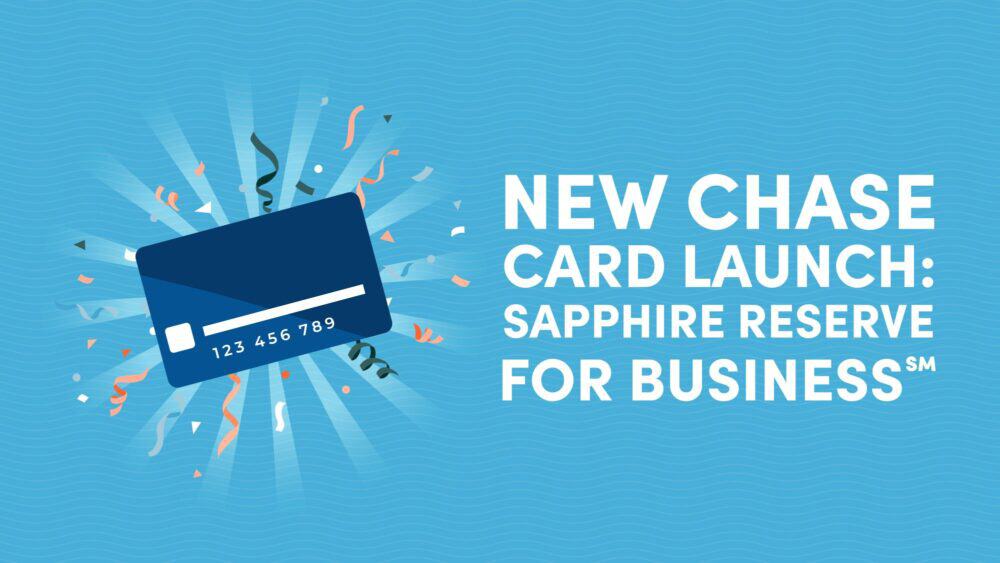
10xTravel is part of an affiliate sales network and receives compensation for sending traffic to partner sites, such as CreditCards.com. This compensation may impact how and where links appear on this site. This site does not include all financial companies or all available financial offers. Terms apply to American Express benefits and offers. Enrollment may be required for select American Express benefits and offers. Visit americanexpress.com to learn more. All values of Membership Rewards are assigned based on the assumption, experience and opinions of the 10xTravel team and represent an estimate and not an actual value of points. Estimated value is not a fixed value and may not be the typical value enjoyed by card members.
Note: Some of the offers mentioned below may have changed or may no longer be available. The content on this page is accurate as of the posting date; however, some of our partner offers may have expired. You can view current offers here.
The Chase Sapphire Reserve® and Chase Sapphire Preferred® Card are two of the most popular credit cards for frequent travelers due to their rewarding bonus categories and the valuable Ultimate Rewards points they earn. However, these two cards also provide a host of often-overlooked protection policies that can save you hundreds or even thousands of dollars in case of misfortune.
To take advantage of these protections, you’ll need to have paid for your trip with the Sapphire card you’re filing a claim under (or through the Ultimate Rewards travel portal with points attached to that card). Generally, this means using your card or points to pay for your transportation – plane ticket, cruise ship, train or bus – not necessarily other pieces like hotels or activities. If you file a claim, you can still be reimbursed for items paid for with other cards, as long as your travel was booked with your Sapphire card.
Since the Sapphire Reserve’s annual fee is so much higher than the Sapphire Preferred, you might expect it to have significantly better coverage. In some cases, that’s true – but the Sapphire Preferred holds its own in many categories. Here’s a rundown of the different travel and purchase protections offered by Chase’s Sapphire credit cards.
Trip Cancellation and Trip Interruption

Trip Cancellation and Trip Interruption protection can reimburse you for nonrefundable reservations if you are forced to cut short a trip or cancel it entirely as the result of situations outside your control such as illness or injury, severe weather, terrorism, jury duty, or death of a traveler or family member. It covers the cardholder and their immediate family members, even if not traveling together, and applies to trips up to 60 days.
Both the Sapphire Reserve and the Sapphire Preferred cover up to $10,000 per covered trip, with a maximum of $20,000 per occurrence (for example if multiple family members have to cancel a trip for the same extenuating circumstance) and $40,000 per rolling 12-month period.
Winner: Tie
Auto Rental Coverage
Both Sapphire cards provide primary rental car coverage, which means that if you use your card to pay for a rental car and it’s damaged or stolen, Chase will cover the cost of repair or replacement as well as towing fees and “valid loss-of-use charges” from the rental agency. This coverage applies to rentals up to 31 consecutive days. The Sapphire cardholder (who can be an authorized user) must be the primary renter, but additional authorized drivers are also covered.
The two cards are nearly identical in their protections, with two small differences that won’t apply to most renters. The Sapphire Preferred has no stated maximum value for the cost of a car replaced under the policy, but “expensive” and “exotic” vehicles are not covered. The Sapphire Reserve card does not exclude expensive and exotic vehicles, but its coverage is limited to $75,000.
Winner: Sapphire Reserve (by a hair)

Trip Delay Reimbursement
Trip Delay Reimbursement can cover unexpected expenses like lodging, meals, toiletries, and medicine if your flight, train, bus, or cruise is delayed. You can be reimbursed up to $500 per ticket purchased, and can only file one claim per trip.
Both the Sapphire Reserve and the Sapphire Preferred offer coverage if you’re forced to stay somewhere overnight due to your delayed trip. For delays that don’t require an overnight stay, the Sapphire Reserve’s coverage kicks in if your trip is delayed for six hours, while with the Sapphire Preferred, you’ll have to experience a 12 hour delay.
Winner: Sapphire Reserve
Baggage Delay Insurance
If your baggage is delayed or misdirected for more than six hours, Chase will reimburse you up to $100 per day for essential items including clothing, toiletries, and one cell phone charging cable, for up to five days. This coverage is secondary, meaning that Chase will only cover expenses not paid for by the carrier or by a separate travel insurance policy. Both Sapphire cards have identical coverage.
Winner: Tie

Lost Luggage Reimbursement
If your luggage gets damaged, never makes it back to you or you leave something on board and the carrier doesn’t find it, Chase will reimburse you up to $3000 for your lost items (electronics and jewelry are subject to a lower cap of $500). Like the baggage delay insurance, this coverage kicks in after any reimbursement from the carrier or a travel insurance policy, and both Sapphire cards offer identical coverage.
Winner: Tie
Roadside Assistance
If you have a roadside emergency, Chase will help you get a tow, jumpstart, tire change, locksmith or gas. If you’re a Sapphire Reserve cardholder, they’ll cover up to $50 per incident up to four times per year; if you have the Sapphire Preferred, they’ll send someone to help, but the cost of the service will be charged to your card.
Winner: Sapphire Reserve
Unsurprisingly, the Sapphire Reserve comes out as the winner in this comparison, beating the Sapphire Preferred in 6 of the 9 categories. However, it’s a helpful reminder that despite the Sapphire Preferred being $455 less expensive than the Sapphire Reserve, it still has a lot of similar or even identical insurance options.
Emergency Evacuation and Transportation

This is one of those benefits that you hope you never have to use, but makes a huge difference if you need it. If you, your spouse/partner, and/or your dependent children experience an injury or illness away from home that’s so severe it requires medical transportation or evacuation, Chase will cover up to $100,000 in expenses if you paid for the trip with your Sapphire Reserve card.
The Sapphire Preferred card does not offer this benefit.
Pro tip: If emergency evacuation coverage is important to you, the American Express Platinum Card offers unbeatable coverage: there’s no cap on the amount they’ll pay, and you’re covered just for being a Platinum cardmember regardless of whether you used the card to pay for the trip.
Winner: Sapphire Reserve
Travel Accident Insurance
Okay, this is really the one you never want to have to use. Both Sapphire cards provide insurance in case of “accidental death or dismemberment, or a combined loss of speech, sight or hearing” while traveling on an airplane, bus, train, or cruise ship, or while you’re away from home if you’ve flown somewhere.
Both cards offer up to $100,000 in coverage for covered incidents between the day you leave and the day you return home. If the accident happens while you’re on board, boarding, or exiting one of the aforementioned carriers, Sapphire Preferred cardholders get up to $500,000 in coverage while Sapphire Reserve cardholders are covered up to $1,000,000.
Winner: Sapphire Reserve

Emergency Medical and Dental Coverage
This benefit is one of the rarest and most interesting travel protections available on a credit card. If you’re traveling at least 100 miles away from home and require emergency medical or dental care, Chase will step in and reimburse you for expenses not covered by your health insurance, up to $2,500. They have a deductible of just $50, and will even pay $75/day for a hotel for up to five days if a doctor says you need time to recover before traveling back home.
This benefit is exclusive to the Sapphire Reserve.
Winner: Sapphire Reserve
Bottom Line
Unsurprisingly, the Sapphire Reserve comes out as the winner in this comparison, beating the Sapphire Preferred in 6 of the 9 categories. However, it’s a helpful reminder that despite the Sapphire Reserve’s higher annual fee, the Sapphire Preferred still has a lot of similar or even identical insurance options. Learning how to use Chase dining, especially with the Reserve’s new $300 annual dining credit for Sapphire Reserve Exclusive Tables, can further enhance the value of your card through exclusive experiences. Hopefully, you’ll never need to use any of these policies – but if you do, any of them could easily make up for many years’ worth of credit card annual fees.
New to the world of points and miles? The Chase Sapphire Preferred® Card is the best card to start with.
With a bonus of 75,000 bonus points after you spend $5,000 on purchases in the first 3 months from account opening. , 5x points on travel booked through the Chase Travel Portal and 3x points on restaurants, streaming services, and online groceries (excluding Target, Walmart, and wholesale clubs), this card truly cannot be beat for getting started!
after you spend $5,000 on purchases in the first 3 months from account opening.
after you spend $5,000 on purchases in the first 3 months from account opening.
Editors Note: Opinions expressed here are author’s alone, not those of any bank, credit card issuer, hotel, airline, or other entity. This content has not been reviewed, approved or otherwise endorsed by any of the entities included within the post.










